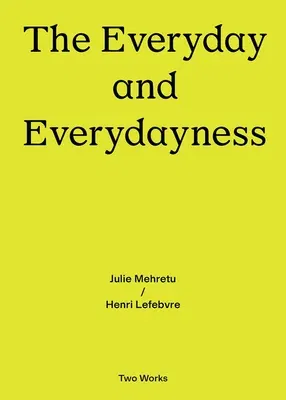A new, affordable edition of French Marxist and proto-Situationist
Henri Lefebvre's classic text on the everyday, illustrated by Julie
Mehretu
The work of French Marxist sociologist and philosopher Henri Lefebvre
radically transformed the discourse of political geography. Witness to
the rapid urbanization of the 20th century, Lefebvre conceptualized
public space as socially produced--a mirror image of capitalist
ideology--and levied a humanitarian slogan in response: "the right to
the city," a notion that has energized the thought of leading American
geographers such as David Harvey and Edward Soja. Lefebvre also worked
closely with the Situationist International, collaborating with them on
urban experiments in the '50s and '60s. Arguably his greatest legacy,
however, is his theory of "the everyday"--a topic he returned to
throughout his life, culminating in his three-volume magnum opus, The
Critique of Everyday Life. Like public space, Lefebvre argued, the
everyday is a social structure concurrent with modernity: "the everyday
is a product, the most general of products in an era where production
engenders consumption."
In this edition of Lefebvre's classic but largely unavailable text, New
York-based artist Julie Mehretu responds to Lefebvre's 1987 essay,
reflecting upon its implications during a time when conceptions of "the
everyday" are both heightened and obscured. She identifies thematic
connections between his text and her own work, casting into relief the
enduring relevance of Lefebvre's consideration of time, space and
place.
An immensely prolific author, Henri Lefebvre (1901-91) is best known
for his books Critique of Everyday Life (1947-81), The Production of
Space (1974) and The Urban Revolution (1970).

